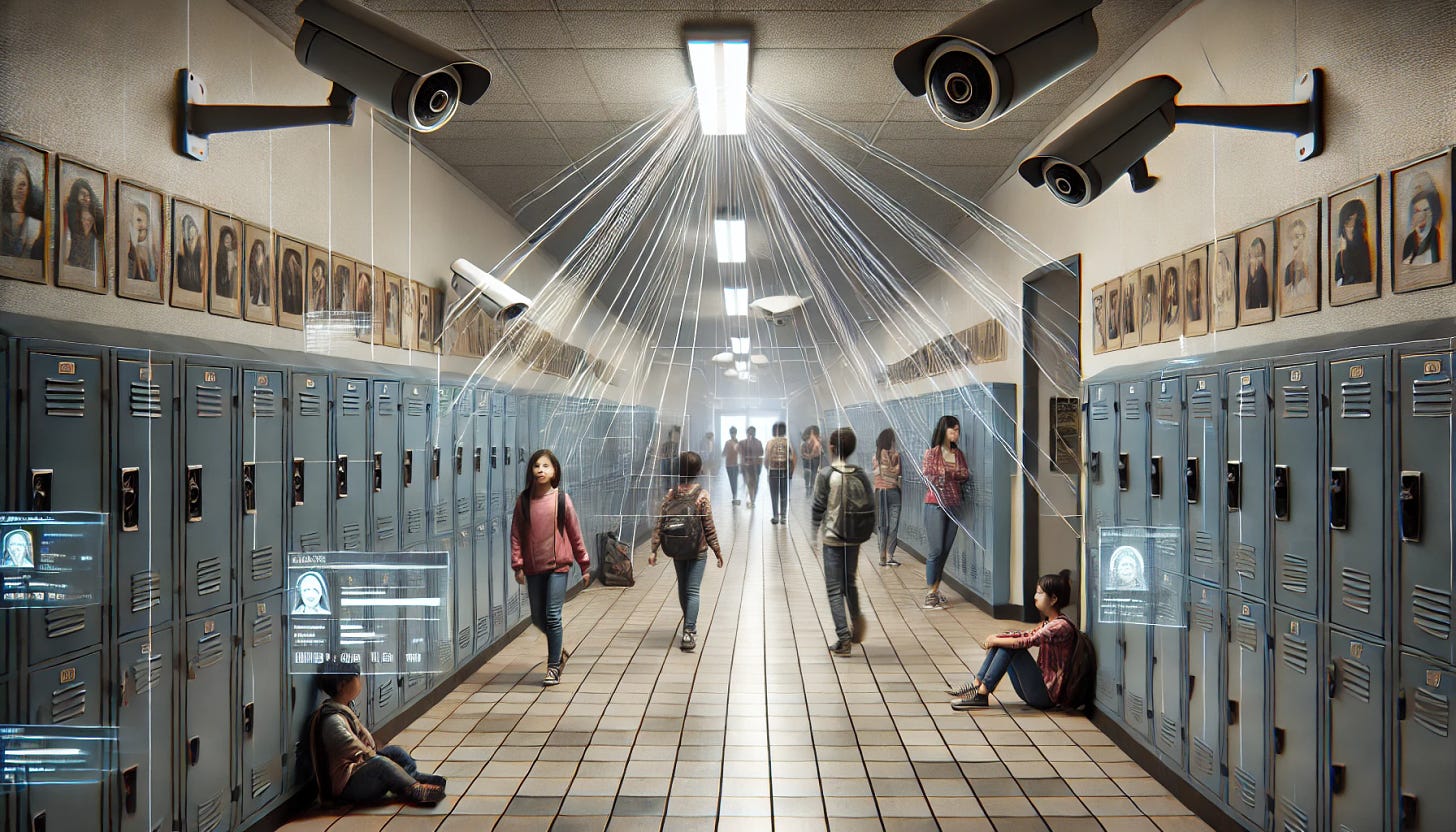Facial Recognition & Emotion Detection in Classrooms - Spotlight #508
Straight Talk in a Tech World: Always Free, Always Private
Good Monday Morning!
It’s August 12th. Mediators from three countries including the U.S. are expected to present a ceasefire and hostage deal to Israeli and Hamas officials on Thursday.
Today’s Spotlight is 1,061 words, about 4 minutes to read.
3 Headlines to Know
Google Is A Monopolist, Rules Federal Judge
A federal court in D.C. has declared Google a monopolist. Judge Amit P. Mehta ruled that Google broke antitrust laws by paying Apple and others to feature its search engine on their devices. A separate antitrust trial on Google's ad tech practices is scheduled in Virginia, with European regulators also investigating the company.
Tech Exec Susan Wojcicki Passes at 56
Susan Wojcicki, a pioneering tech leader, has died of cancer at 56. Early in her career at Intel, she rented her garage to Google founders Larry Page and Sergey Brin for their startup, eventually becoming Google's 16th employee and later CEO of YouTube. Her sister Anna later married and divorced Brin.
Microsoft Blames Delta for Tech Issues
Microsoft is pushing back against Delta Air Lines' claims about the tech problems that grounded thousands of flights last month. The issue followed a flawed update from Microsoft vendor CrowdStrike. Microsoft says Delta faced more disruptions than other airlines because it refused Microsoft's help and relied on outdated IT systems.
Running Your Organization: Cyberinsurance Industry Facing $10 Billion Loss
The cyberinsurance industry anticipates losses below $10 billion from the Microsoft CrowdStrike outage. Cyber insurance remains risky as the industry grapples with defining accountability. Earlier this year, Warren Buffett, owner of Geico and General Re, urged caution, advising agents to sell cyber policies only when necessary to satisfy a client.
SPOTLIGHT: Big Brother in the Classroom: K-12's Privacy Dilemma (part 2)
Last week, part one of this two part series covered keystroke logging and device surveillance of K-12 students. This week is about more external surveillance tools.
K-12 schools are now exploring even more advanced technologies: facial recognition and emotion detection by AI software.
Facial Recognition in Schools
Facial recognition is being adopted by some K-12 schools to track students' movements and enhance security although the technology is now banned in some areas. For instance, certain districts have begun implementing this technology in school entrances to monitor who is coming in and out, with the intention of preventing unauthorized access and enhancing overall safety.
However, the use of facial recognition raises significant privacy and ethical concerns. Studies have shown that facial recognition is prone to racial bias and misidentification, particularly with students of color and viewers with limited training. These inaccuracies can lead to unjust consequences, such as unwarranted scrutiny or disciplinary actions.
The pervasive nature of this technology creates a sense of constant surveillance, which might alter students' behavior, making them more anxious or reserved in their daily activities.
Emotion Detection and AI
Emotion detection technology is the latest addition to the surveillance toolkit in schools.
This AI-driven tool analyzes facial expressions, tone of voice, and other cues to gauge a student's emotional state, aiming to identify signs of stress, disengagement, or other issues. While this might sound like a useful tool for early intervention, the technology's accuracy is highly questionable.
Emotion detection systems often struggle to interpret expressions correctly, especially across diverse cultural and racial backgrounds, leading to a high risk of misinterpretation. For instance, a student’s neutral expression might be wrongly classified as anger or sadness, triggering unnecessary and possibly invasive interventions. Additionally, the implementation of such technologies in K-12 settings raises legal and policy concerns.
Current privacy laws often lag behind these technological advancements, leaving significant gaps in the protection of student data and leading to potential legal challenges.
Commercialization of Emotional Data
The introduction of emotion detection technology also opens the door to the commercialization of deeply personal data. Companies involved in these technologies might not only provide these tools to schools but also look to monetize the emotional data collected. This data could be aggregated and sold, raising concerns about who controls the information and how it is used.
Parents and students often have little to no say in these decisions, leading to a loss of privacy and control over their own personal information.
Practical AI: Meta’s AI Breakthrough
Meta has made a significant move in the AI world by releasing pre-trained models that use a new approach called multi-token prediction. Unlike traditional models that predict one word at a time, Meta's method forecasts multiple words simultaneously. This innovation could make AI faster, more efficient, and less costly to train.
Debunking Junk: King Charles Calls for Peace
King Charles is urging peace after race riots targeting Muslims and migrants erupted in Britain. The violence was fueled by false online posts claiming an Muslim migrant was responsible for the deaths of three young girls. Controversial billionaire Elon Musk intensified the situation by declaring civil war inevitable and accusing UK authorities of favoring non-white communities over white ones.
Protip: Make iPhone Your Official Driver’s License
Arizona, Colorado, Georgia, Maryland, and Ohio now let you store your official driver’s license in Apple Wallet. More states are expected to follow. Here’s a step-by-step guide on how to add your license to your phone.
I really appreciate you reading Spotlight. If you find it useful, please share it with a friend, colleague, or relative who might also enjoy it.
Screening Room: Pedigree’s Dream Maker
Science Fiction World: Sun-Reflecting Auto Paint
Nissan is testing a new paint that reflects infrared rays and generates electromagnetic waves to counter the sun's heat. The result? Cars parked in the sun stay up to 22 degrees cooler on the outside, which translates to a 9-degree drop inside.
Tech For Good: Oximeter Dark Skin Flaws
Pulse oximeters, which measure blood oxygen, often give inaccurate readings for people with dark skin. This can lead to serious health risks if low oxygen levels aren't detected. Engineers are working on solutions like better light sensors that adjust for skin tone, new algorithms to reduce errors, and even alternative light sources like green light for more consistent results. These improvements are still in development, but they could lead to better, fairer healthcare in the future.
Coffee Break - The Internet’s Baby Photos
Dive into Neal Agarwal's Internet Artifacts, where you can explore dozens of digital relics. From the first spam email in 1978 and the original text emoticons to early streaming videos and non-Google search engines, this collection showcases the milestones that shaped the internet as we know it.





Ok...the 'Dream Maker' ad...definitely pulls on the heart strings. ALMOST made me run out and find a dog to pet. :-)